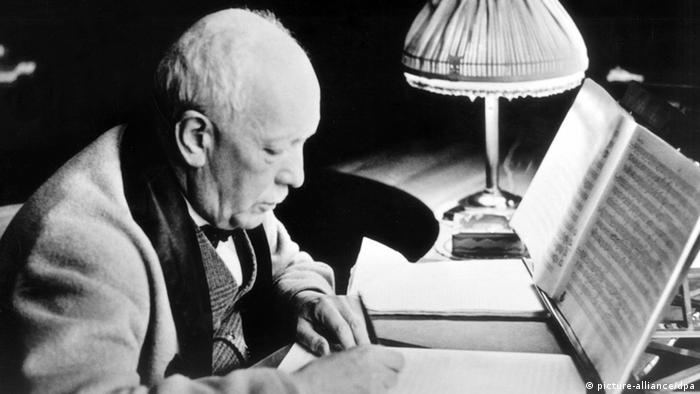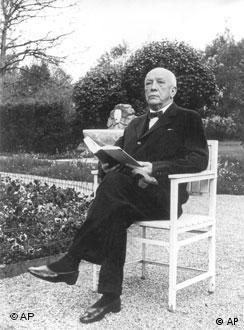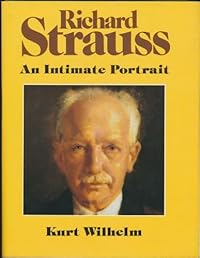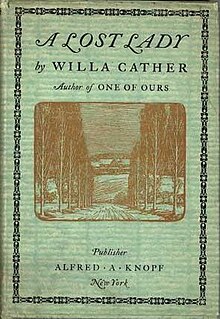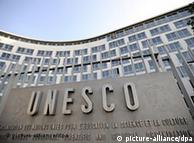To the Editors:
I am shocked by your recent articles on Vietnam and China, the likes of which one might expect to appear in
Commentary or the
Readers Digest. Apparently it is intellectually chic again to be anti-communist, especially in regard to third world countries.
The authors of both pieces had profound personal biases against their subjects. One of your readers has already pointed this out in reference to the Vietnamese piece (
NYR, May 12). I shall therefore focus on Simon Leys’s China pieces (
NYR, May 26 and June 9).
There is a proclivity among European intellectuals going as far back at least as Hegel to see China in terms of oriental despotism. It does not matter whether it is contemporary or historical China—it is all the same, there is always that terrible oriental despotism that the Chinese cannot escape. The most articulate of the twentieth-century European exponents of this point of view was Etienne Balazs. In a brilliant series of essays he argued that the Chinese had chances to escape oriental despotism through the Sung dynasty (end 1368). After that it has been all down hill. The weight of the past is such that contemporary China can in no way escape it—any revolution is a false one. Usually this view is derivative, as it was in Balazs’s case, of his own disillusionment with European politics and the left in particular. At bottom the Oriental Despotism view of China is Europe-centered. The genuine social and political revolution must come first in the West. Since it has not happened in the West, it is preposterous to talk of genuine revolution in such a place as China.
I shall be specific on three points.
1) Walls, the walls that Leys mourns so bitterly. Is it not just possible that city walls symbolize the oppression of the past to most Chinese? Both Chiang Kai-shek and the Japanese hid behind these walls for decades—used as bulwarks against the guerrillas in the countryside. It was their custom also to put the ordinary inmates of these marvelously walled cities up against these walls and shoot them for some crime real or imagined. The heads of dissenters were displayed on these wonderful walls. And then there was the squatter housing squashed up against Mr. Leys’s walls.
2) Wang Shi-wei, the dissident who was shot in Yenan in 1947. True enough Wang was shot in Yenan in 1947 and Mao afterwards talked about it. What Leys fails to say is that Mao considered the execution a serious error which should not be repeated. In China, as elsewhere (even Europe), dissidents are persecuted, but they are rarely executed. In the 1950s we executed the Rosenbergs and today we publicly regret it. Eisenhower advocated executing American communists and we are embarrassed. Does this mean that Stalinist purges are the rule in either China or the
US?
Perhaps your readers would be interested in Mao’s full statement in 1962 about Wang Shi-wei’s execution:
There was another man called Wang Shi-wei who was a secret agent working for the Kuomintang. When he was in Yenan, he wrote a book called The Wild Lily, in which he attacked the revolution and slandered the Communist Party. Afterwards he was arrested and executed. That incident happened at the time when the army was on the march, and the security organs themselves made the decision to execute him; the decision did not come from the Center. We have often made criticisms on this very matter; we thought that he shouldn’t have been executed. If he was a secret agent and wrote articles to attack us and refused to reform till death, why not leave him there or let him go and do labor? It isn’t good to kill people. We should arrest and execute as few people as possible. If we arrest people and execute people at the drop of the hat, the end result would be that everybody would fear for themselves and nobody would dare to speak. In such an atmosphere there wouldn’t be much democracy. [from “On Democratic Centralism” in Stuart Schram, ed., Chairman Mao Talks to the People (Pantheon, 1974), pp. 184-185]
3) It is well known that the diplomatic community in China lives an isolated existence and receives formal and bureaucratic treatment from the Chinese. The ordinary visitor is received in a much more friendly, relaxed manner—and often sees much more than the cloistered diplomat like Leys did. There are other foreigners living in China as well. Teachers, students, “experts,” and writers have a much less isolated existence and often a rather integrated life among the Chinese people. Has Mr. Leys ever met Sid Engst, Jim Veneris, Israel Epstein, and others like them in China? Their perspective on the foreigner in China is rather different than Mr. Leys’s, although not without problems and barriers (see for example the excellent book by David and Nancy Milton,
The Wind Will Not Subside [1976], which revolves around the foreign community in Beijing).
No doubt Mr. Leys knows all this and that is what angers. His rigid preconceptions about the nature of past and present Chinese society and politics force a level of dishonesty which is unworthy of
The New York Review….
Stephen R. MacKinnon
Tempe, Arizona
Simon Leys replies:
Mr. MacKinnon’s criticism bears on four questions. Let us discuss them in succession:
—Concerning Balazs: Etienne Balazs was a great scholar and an admirable man. That Mr. MacKinnon in reading my modest little essays should be induced to compare me with him fills me with a mixture of confusion and pride. (I doubt however if Mr. MacKinnon did understand Balazs’s writings any better than mine.)
—Concerning city walls: In underlining the fact that walls can symbolize oppression and that it was therefore right to pull them down, Mr. MacKinnon raises a very interesting point. Come to think of it—is it not a shame that, in a revolutionary capital such as Peking, quite a number of other (far worse) symbols of oppression are still allowed to stand: the Imperial Palace, the Summer Palace, etc.? Actually, in this respect, too many countries are still badly in need of a big clean-up: the London Tower, the Louvre, the Escorial, the Vatican, the pyramids of Egypt, etc., etc., are all awaiting the revolutionary intervention of Mr. MacKinnon’s pickaxe. If he intends to devote his energy to such a worthy cause, he has, without doubt, a most busy career ahead of him.
—Mao’s quotation concerning Wang Shih-wei: three points
- “Mao deplored the execution of Wang Shih-wei.” Nixon too deplored his “plumbers” initiatives at Watergate. Great leaders are so often done a disservice by clumsy underlings!
- “Mao opposes random killings.” This in fact was the only point on which Mao significantly departed from Stalin’s doctrine. Mao always agreed with the principle of Stalinist purges; only, to his more sophisticated taste, their methods appeared rather crude, messy, and wasteful. Mao eventually developed his own theory of the efficient way of disposing of opponents—which is expressed quite clearly in the fifth volume of his Selected Works recently published in Peking: executions should not be too few (otherwise people do not realize that you really mean business); they should not be too many (not to create waste and chaos). Actually before the launching of some mass-movements, quotas were issued by the Maoist authorities, indicating how many executions would be required in the cities, how many in the countryside, etc. This ensured a smooth, rational, orderly development of the purges. Some people see in this method a great improvement by comparison with Stalin’s ways. I suppose it might be so—at least from Big Brother’s point of view.
- “Mao said that Wang Shih-wei was a secret agent working for the Kuomintang.” And Stalin said that Trotsky was a secret agent working for the Nazis. Later on it was also said that Liu Shao-ch’i was a secret agent working for the Americans. And that Lin Piao was a secret agent working for the Soviet Union. And now we have just learned that Madame Mao had been working for Chiang Kai-shek. Why not? After all there are always people ready to believe these things—Mr. MacKinnon, for instance.
—Other foreigners living in China: I do have a wide circle of acquaintances who have been, or are still, working in China in various capacities. I do also keep in close touch with a number of Chinese friends, former citizens of the People’s Republic, who know Chinese realities from the inside, a thousand times better than either Mr. MacKinnon or myself will ever do. If it had not been for the advice and encouragement I received from those persons who kept telling me that I was right on target, I would never have felt confident enough to publish these subjective impressions of China. On one point, however, I agree with Mr. MacKinnon: I too think it most unlikely that a person living in Peking, and being employed by the Chinese government, would ever express publicly his agreement with my views (though I know some who do so in private).
訃告
揭露「文化大革命」本質的漢學家去世
傅才德 2014年08月20日
![皮埃爾·李克曼曾使用筆名西蒙·萊斯,1955年上學時首次到中國旅行。了解到「文化大革命」的情況後,他對中國的浪漫化觀點消散了。]()
William West/Agence France-Presse — Getty Images
皮埃爾·李克曼曾使用筆名西蒙·萊斯,1955年上學時首次到中國旅行。了解到「文化大革命」的情況後,他對中國的浪漫化觀點消散了。
比利時出生的中國學學者皮埃爾·李克曼(Pierre Ryckmans)曾質疑西方在20世紀60年代將毛澤東浪漫化的觀點,並率先將毛髮起的「文化大革命」描述為混亂和破壞的景象。周一(8月11日——譯註)他於澳大利亞悉尼家中逝世,享年78歲。
他的女兒詹尼·李克曼(Jeanne Ryckmans)宣布死因是癌症。
李克曼以其筆名西蒙·萊斯(Simon Leys)更加廣為人知。1955年,19歲的他與比利時的同學們一起到中國旅遊,從此便愛上了這個國家。期間更是受到周恩來總理的接見。毛澤東發起「大躍進」所導致的饑荒人禍,乃至始於1966年,止於1976年毛澤東去世的「文化大革命」都還是後話。在當時,新中國有很多值得讚美之處。
但是對於一個西方人來說,留在中華人民共和國學習中國藝術、文化和文學是不可能的,於是他去了台灣,在那裡遇到了未來的妻子張涵芳(音譯)。後來他也曾在新加坡和香港定居。
20世紀60年代末,香港仍然是英國的殖民地,在那裡,李克曼開始關注越過香港邊境的混亂,閱讀中國官方媒體關於「文化大革命」的報道,和逃離中國大陸的人交談,他們原來都曾是毛澤東的支持者。
許多西方知識分子對毛澤東懷有浪漫主義觀點,認為他雖然有缺點,但卻是進步的,是人民大眾的捍衛者,李克曼漸漸發現,這些浪漫的觀點和「文化大革命」的殘酷性完全是互相抵觸的。「文化大革命」力圖抹殺中國文化傳統與西方資本主義的影響,代之以正統的毛主義。這個運動導致了大清洗,強制的國內流放與不同政治派別的互相打擊。這促使李克曼開始涉足政治評論領域。
「1966年之前,中國政治根本沒有引起我的關注,我對中國的一切都有好感,我充滿信心地把這種好感也延伸到了毛主義政權上面,並沒特別多想,」李克曼在他以筆名出版的《中國的陰影》(Chinese Shadows)中寫道,該書於1974年以法語首次出版。「但是我從香港這個有利的位置從始至終地觀察了』文化大革命』,這迫使我從舒服的無知中脫離出來。」
他的第一本書《主席的新裝》(The Chairman』s New Clothes)也是用法文出版,那是1971年,一年後,他定居澳大利亞,因為著名中國文學學者柳存仁將在澳大利亞國立大學教書。李克曼以筆名西蒙·萊斯出版了這本書,掩蓋真實身份是為了防止被中國拒之門外。
1972年,他為比利時大使館擔任文化隨員工作,回到中國呆了六個月。看到這座城市的古建築遺產遭到破壞,他大為震驚。
在《中國的陰影》中,他寫到自己瘋狂地尋找這座城市最宏偉的巨大城門,他覺得它們本應被保留,儘管他知道這座城市的城牆從20世紀50年代開始就已經在進行拆除了。城門不見了。「確切地說,北京城門的拆除是一種褻瀆;充滿戲劇性的不是官方拆除了它們,而是始終不解他們究竟為什麼要拆除它們,」他寫道。
他發現,「文化大革命」破壞了中國文化與文明之美,卻沒有摧毀文化中應當被去除的東西——暴虐與專制。
前澳大利亞總理陸克文(Kevin Rudd)曾是李克曼的學生,在一次電話採訪中,他說李克曼是「20世紀六七十年代第一個揭露』文化大革命』中文化褻瀆真相的西方漢學家,他剝除了其上的政治虛飾,暴露出它的真正本質:由毛澤東領導的一場中共內部醜陋而暴力的政治鬥爭」。
陸克文還說:「當時的漢學家們大都迷戀『文化大革命』早期的浪漫色彩,因此嚴厲地指責他。」
諷刺的是,陸克文說,毛澤東死後,中國領導人開始否定「文化大革命」。許多老北京令人欣喜的東西又回來了,比如食品小攤和夏日街頭的舞蹈,人們開始欣賞古典藝術、文學,乃至曾遭受毛主義者中傷的古典學者孔子。李克曼曾把孔子的語錄《論語》譯成英文。
但李克曼並沒有隨着時間的流逝而改變。「讓皮埃爾接受中國自『改革開放』以來這些真實的、可持續和積極的變化是很困難的,」陸克文說。
李克曼的連襟、同樣也是漢學家的任格瑞(Richard Rigby)說,李克曼不僅是漢學家,也是令人敬畏的歐洲學者,他曾在比利時獲得法學與藝術的博士學位。他說,李克曼的演講博採東西方之長。
「他可以將一幅中國國畫,或奧威爾(Orwell)寫的什麼東西以及蒙田(Montaigne)的散文結合起來,成為一個連貫的整體,」任格瑞說。
李克曼還寫過長篇小說《拿破崙之死》(The Death of Napoleon),書中想像了這位被罷黜的君王從聖海倫島流放地逃回法國的經歷。1986年在法國首版,1992年出版了英文版,小說家佩尼洛普·菲茨傑拉德(Penelope Fitzgerald)曾為《紐約時報》書評版撰文,稱之為「一本非同尋常的書」,2002年,它被改編為電影,由伊恩·霍爾姆(Ian Holm)和休·博內威利(Hugh Bonneville)主演。
李克曼經常為《紐約書評》(The New York Review of Books)、《世界報》(Le Monde)和其他期刊撰稿,並獲得多項文學獎。
他於1935年9月28日出生於布魯塞爾,除了女兒,他在世的親人還包括妻子與兒子馬克(Marc)、艾蒂安(Etienne)和路易(Louis),以及兩個孫輩。
他曾在悉尼大學教書,晚年在寫作和玩帆船中度過。他的文集《無用堂文存》(The Hall of Uselessness)於2011年出版,探討從堂·吉訶德到孔子在內的各種話題。
在《中國的陰影》一書中,李克曼寫道,儘管毛和他的扈從們終將離場,權威統治會出現一個不可避免的放鬆時期,但共產主義統治的基本特點不會改變。
「在不同時期對共產主義中國的各種描述中,人們可以發現區別,」他寫道。「如果這些描述都是發自良心,有洞察力的,它們呈現出來的東西要比短暫的新聞真實更多,各種改良都是量變,而不是質變——它們只是角度上的變化調整,而不是基本方向的改變。」
本文最初發表於2014年8月15日。
傅才德(Michael Forsythe)是《紐約時報》記者。
翻譯:董楠
Pierre Ryckmans, 78, Dies; Exposed Mao’s Hard Line
By MICHAEL FORSYTHE August 20, 2014
Pierre Ryckmans, who used the pen name Simon Leys, first traveled to China as a student in 1955. His once romantic view of China dissipated when he learned of the Cultural Revolution.Pierre Ryckmans, a Belgian-born scholar of
China who challenged a romanticized Western view of
Mao Zedong in the 1960s with his early portrayal of Mao’s Cultural Revolution as chaotic and destructive, died on Monday at his home in Sydney, Australia. He was 78.
His daughter, Jeanne Ryckmans, said the cause was cancer.
![Young students in the Red Guard waved copies of the “Little Red Book,” a collection of quotations by Mao, at a parade in Beijing in June 1966 to celebrate the start of the Cultural Revolution.]()
Jean Vincent/Agence France-Presse — Getty Images
Young students in the Red Guard waved copies of the “Little Red Book,” a collection of quotations by Mao, at a parade in Beijing in June 1966 to celebrate the start of the Cultural Revolution.
Mr. Ryckmans, who was better known by his pen name, Simon Leys, fell in love with China at the age of 19 while touring the country with fellow Belgian students in 1955. One highlight was an audience with Prime Minister Zhou Enlai. The man-made famine of Mao’s Great Leap Forward and his Cultural Revolution, which began in 1966 and ended about the time of Mao’s death, in 1976, were still in the future. There was much to be admired in the new China.
Yet pursuing his studies of Chinese art, culture and literature in the People’s Republic itself was not an option for a Westerner, so he settled in Taiwan, where he met his future wife, Han-fang Chang. He also lived in Singapore and Hong Kong.
It was in Hong Kong during the late 1960s, when it was still a British colony, that Mr. Ryckmans (pronounced RICK-mans) began to follow the turmoil just across the frontier, reading accounts in the official Chinese press about the Cultural Revolution and talking to former Mao supporters who had escaped it.
He began to find that the romantic view of Mao harbored by many Western intellectuals — as a progressive if flawed champion of the masses — was completely at odds with the cruelties of the Cultural Revolution, which sought to eradicate Chinese cultural traditions and Western capitalist influences and replace it with a Maoist orthodoxy. The movement led to purges, forced internal exiles and whipsaw shifts in the political winds, and it compelled Mr. Ryckmans to step into the arena of political commentary.
“Until 1966 Chinese politics did not loom large in my preoccupations, and I confidently extended to the Maoist regime the same sympathy I felt for all things Chinese, without giving it more specific thought,” Mr. Ryckmans wrote under his pseudonym in “
Chinese Shadows,” which was first published in French in 1974. “But the Cultural Revolution, which I observed from beginning to end from the vantage point of Hong Kong, forced me out of this comfortable ignorance.”
His first account, “The Chairman’s New Clothes,” was also published in French, in 1971, a year after he had settled in Australia, lured by an eminent Chinese literary scholar, Liu Cunren, to teach at Australian National University. Mr. Ryckmans wrote the book under the name Simon Leys to disguise his identity so that he would not be banned from China.
He returned to China in 1972 on a six-month assignment as a cultural attaché for the Belgian Embassy in Beijing. The wanton destruction of the city’s ancient architectural heritage shocked him.
In “Chinese Shadows,” he wrote of his frantic search for some of the most magnificent of the city’s huge gates, which he assumed had been preserved, even though he knew that the city walls had been taken apart starting in the 1950s. The gates were gone. “The destruction of the gates of Peking is, properly speaking, a sacrilege; and what makes it dramatic is not that the authorities had them pulled down but that they remain unable to understand why they pulled them down,” he wrote.
The Cultural Revolution, he found, had destroyed the beauty of Chinese culture and civilization without destroying what needed to be exorcised: the tyranny of arbitrary rule.
In a telephone interview, Kevin Rudd, a former prime minister of Australia and a former student of Mr. Ryckmans, called him “the first of the Western Sinologists of the ’60s and ’70s to expose the truth of the cultural desecration that occurred during the Cultural Revolution, ripping away the political veneer from it all and exposing it for what it was: an ugly, violent, internal political struggle within the Chinese Communist Party led by Mao.”
Mr. Rudd added, “He was excoriated at the time by Sinologists who had been captured by the romance which many felt for the Cultural Revolution in the early days.”
The irony, Mr. Rudd said, is that the Chinese leadership moved to repudiate the Cultural Revolution after Mao’s death. Many of the delights of old Beijing — the food stalls, the street dancing on a summer’s evening — did indeed return, as did an appreciation for classical art, literature and, finally, the classical scholar Confucius, who had been vilified by the Maoists. Mr. Ryckmans translated, into English, the “Analects,” the collection of sayings attributed to Confucius.
Yet he did not change with the times. “It was difficult to get Pierre to accept that real, sustainable and positive changes had occurred in the China of the period of ‘reform and opening,’ ” Mr. Rudd said.
More than a Sinologist, Mr. Ryckmans was also a formidable European man of letters, earning doctorates in law and art in Belgium, said Richard Rigby, a China scholar and Mr. Ryckmans’s brother-in-law. His lectures, he added, brought the best of both worlds together.
“He could look at a Chinese painting or maybe something by Orwell and essays by Montaigne and put them all together into a coherent whole,” Mr. Rigby said.
Mr. Ryckmans also wrote a novel, “
The Death of Napoleon,” which imagines the deposed emperor escaping from exile on St. Helena and making his way back to France. First published in France in 1986 and then in English in 1992, it was hailed as “an extraordinary book” by the novelist Penelope Fitzgerald, writing in The New York Times Book Review, and
adapted into a film, with Ian Holm and Hugh Bonneville, in 2002.
Mr. Ryckmans was a frequent contributor to The New York Review of Books, Le Monde and other periodicals and the recipient of several literary prizes.
He was born on Sept. 28, 1935, in Brussels. Besides his daughter, he is survived by his wife; his sons Marc, Etienne and Louis; and two grandchildren.
He also taught at the University of Sydney and spent his later years writing and sailing. A collection of his essays, “The Hall of Uselessness,” discussing topics as far-ranging as “Don Quixote” and Confucius, was published in 2011.
In “Chinese Shadows,” Mr. Ryckmans wrote that even though Mao and his acolytes would leave the scene, and there would be an inevitable relaxation of authoritarian rule, the fundamental characteristics of Communist rule would not change.
“Among various descriptions of Communist China made at different times, one may note differences,” he wrote, “yet if these descriptions have been made conscientiously and perceptively, they will show more than ephemeral journalistic truths, for modifications will be in quantity, never in quality — variations in amplitude, not changes in basic orientation.”

























